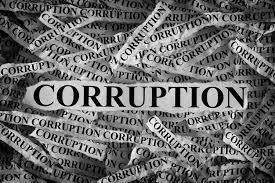President Cyril Ramaphosa has appointed a nine-member body to advise the South African government on the fight against fraud and corruption.
According to Ramaphosa, the National Anti-Corruption Advisory Council (NACAC) brings together representatives from civil society and business and is chaired by academic Firoz Cachalia, with his deputy being National House of Traditional Leaders chairperson Nomandla Dorothy Mhlauli.
Other members of the NACAC are Kavisha Pillay, David Lewis, Nkosana Dolopi, Barbara Schreiner, Nokuzula Khumalo, Sekoetlane Phamodi and Thandeka Gqubule-Mbeki.
“The National Anti-Corruption Advisory Council is the embodiment of our united resolve as a nation to rid all components of our society of all forms of crime and corruption and develop a whole-of-society response to and prevention of this scourge,” Ramaphosa said.
Corruption is one of main challenges facing South Africa and has been blamed for the recent deterioration of service delivery by government departments and municipalities.
This has been one of the issues at the heart of service delivery protests that have rocked the country in recent months.
The council will advise the president on matters related to fighting corruption in line with the National Anti-Corruption Strategy 2020-2030.
Among other things, the council is expected to advise Ramaphosa on effective implementation of the anti-corruption strategy by government and civil society, including the private sector.
It would also provide advisory input on matters related to government’s response to the recommendations of the Judicial Commission of Inquiry into Allegations of State Capture, which fingered several senior government officials in corrupt activities.
An interdepartmental team led by Ramaphosa’s office is currently developing the government’s response to the state capture report, which the president is expected to present to parliament by October 22.
The state capture report has made wide-ranging recommendations on dealing with cases of fraud and corruption and measures to be taken to prevent, detect and prosecute corruption across all sectors of society into the future.
JN/APA


